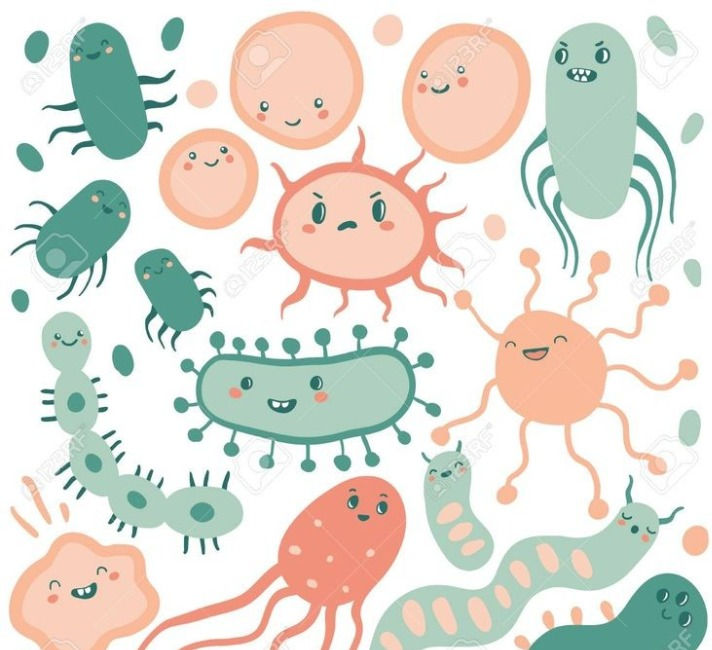Introduction and Gut Microbiota
- Jan 9, 2022
- 2 min read
Hello and welcome to my new blog! I'm quite excited to start and will hopefully share with you informative and interesting ideas on nutrition that will help you to understand and make positive choices for your health!
I find it is always interesting and useful to have some background information to fully understand the reasons for things. I'm quite a science geek (I have another degree in life sciences!) so I will be including as much scientific evidence as possible in an easy comprehensible way for you to understand.
I aim to cover a wide variety of subjects which will include covering all vitamins and minerals, eating in pregnancy, nutrition for toddlers, teenagers, perimenopause, eldery and anything else that I learn as I continue to grow my knowledge base! I am also open to any suggestions of topics that you would like to know about.

I'd like to start off with my favourite subject of gut microbiota, which really fascinates me! I will explain what exactly it is and how it is important for our health.
Gut Microbiota
The microbiota that is found in the gut is a complex metabolic ecosystem inhabited by tens of trillions of microorganisms.
The digestive tract is the barrier between your body and the environment and this means that food has to pass through the gut lining's defence barrier before it gets into your bloodstream. This means that the gut has a huge responsibility and explains the reason why it has around 70% of the body’s immune cells.

The microbiota that is found in the gut is a complex metabolic ecosystem inhabited by tens of trillions of microorganisms. It is dominated by anaerobic bacteria but also includes fungi, viruses and protozoa. The gut microbiota has a crucial involvement in a range of physiological functions such as maintenance of metabolic homeostasis, regulating immune function and protection for the body from invading pathogens.
The microbiota found in the gut are hungry for as many different types of plant based fibres as you can eat. We cannot digest plant fibre ourselves as we do not make the correct digestive enzymes. However the microbiota found in our gut can digest this fibre for us.
There is plenty of scientific evidence to demonstrate that the more diverse your diet is, the more diverse and adaptable your microbiota is likely to be (1). Also research has demonstrated that the microbiota is not only involved in digestion but also other bodily functions such as immunity and brain function then this more diverse input is thought to create a stronger output making you healthier (2 ).
This is the reason why the focus is on creating a more plant based diet to improve health.

Types of plant foods include wholegrains, fruits, vegetables, nuts and seeds, legumes (beans and pulses) and herbs and spices. It is thought that we should be aiming for around 30 different types of plant foods per week. This might feel like a challenge but it is one that I am accepting and I hope that I have convinced you to do so too!
Take the plant foods challenge with me!
References
Kc D, Sumner R, Lippmann S. Gut microbiota and health. Postgraduate medicine. 2020 Apr 2;132(3):274-.
Belkaid Y, Hand TW. Role of the microbiota in immunity and inflammation. Cell. 2014 Mar 27;157(1):121-41.



Comments